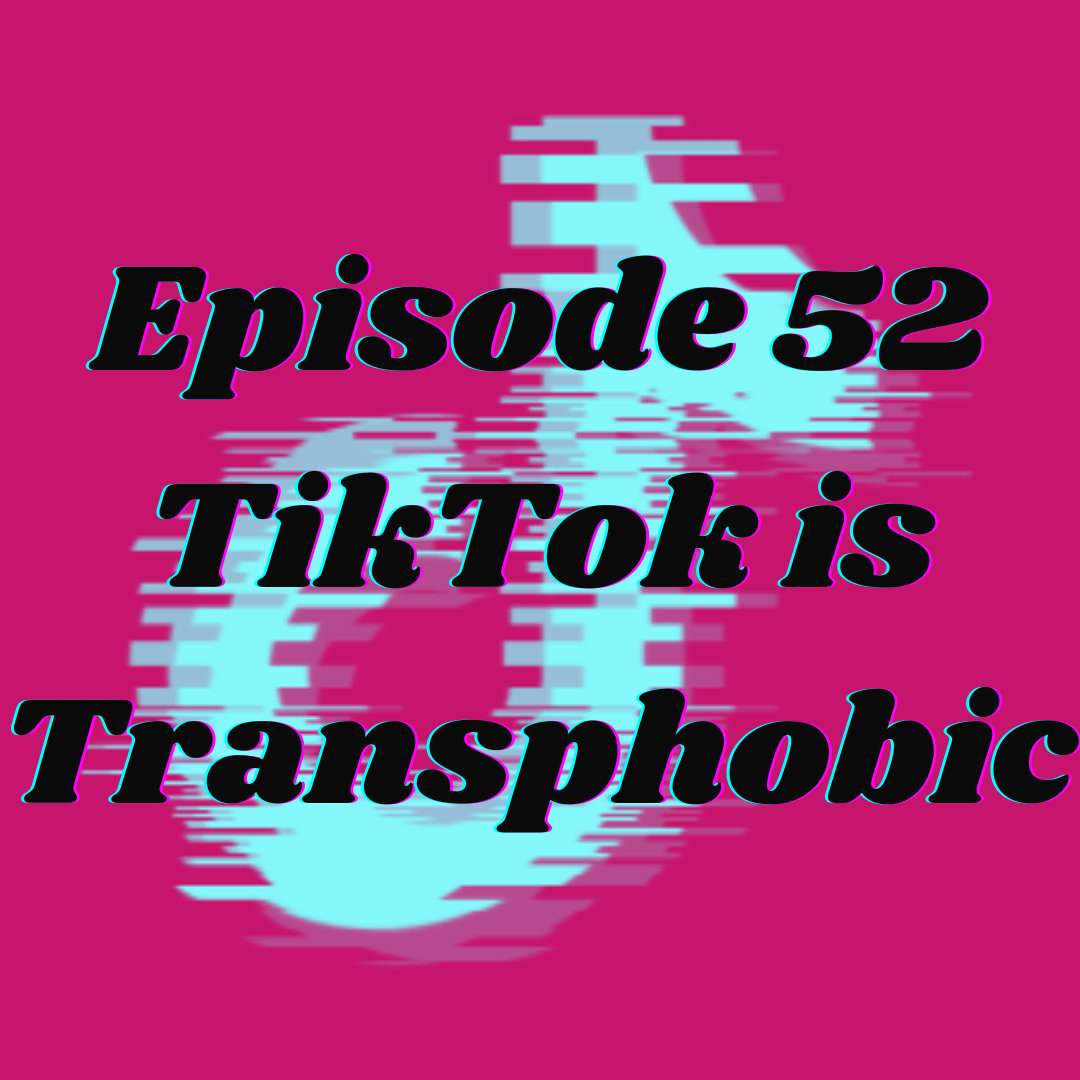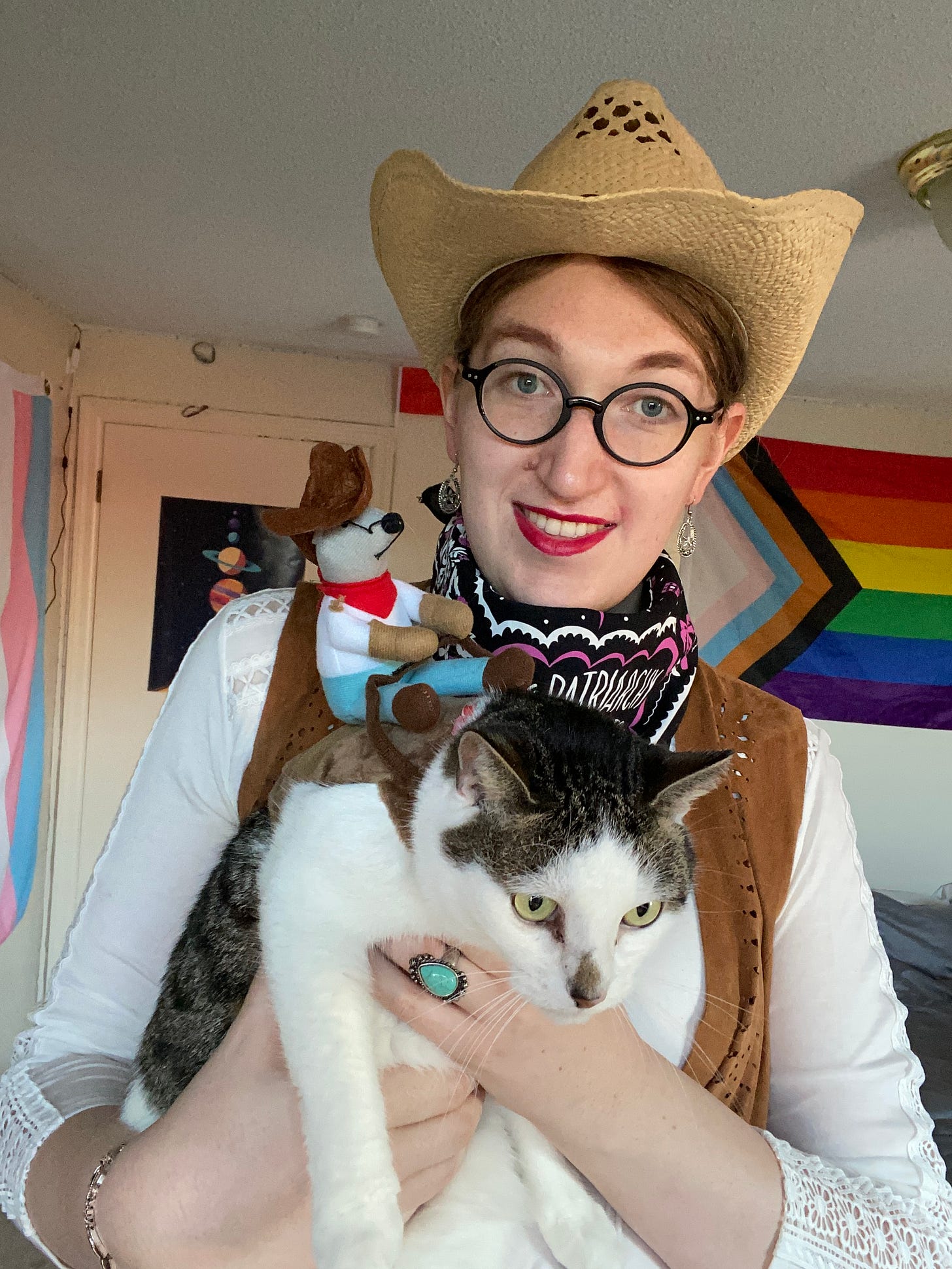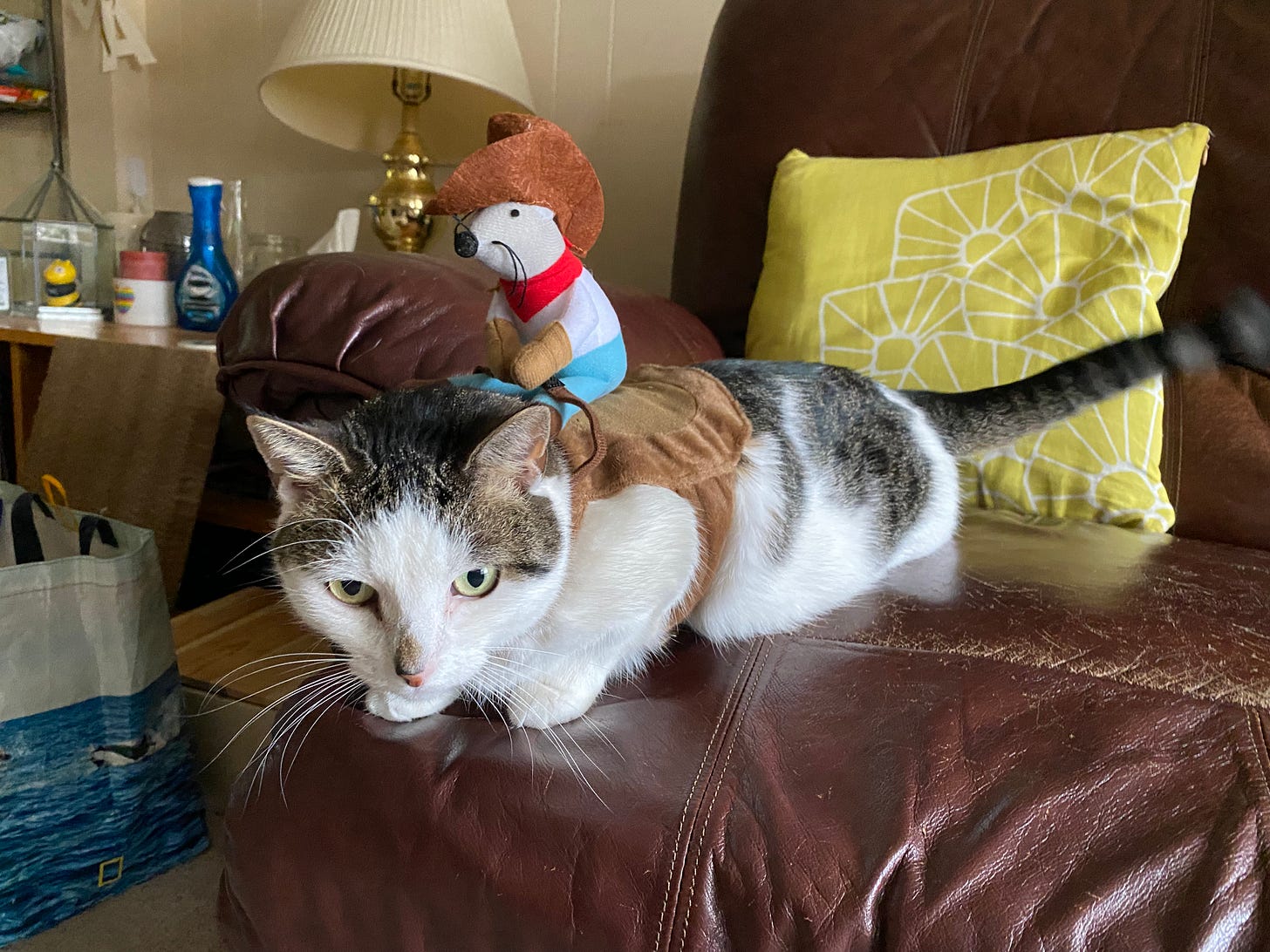I just published a new podcast episode all about transphobic content suppression on TikTok! This involved interviewing five of my favorite trans creators on the app, who you should definitely go follow!
Azrael Kaos: @bigbattyxena
Lauren Sundstrom: @laurengsundstrom
Lucy Leon: @lucy.thinks.aloud
Marla Alpert: @thefloorismarlava
Maybe Burke: @believeinmaybe
Below is the introduction to the episode. Listen to the full documentary for the full story. You can also listen to all six and a half hours of interview recordings by becoming a Patron of the show.
Thanks for reading!!
It’s hard to explain just how impactful TikTok is in our modern culture. I could describe TikTok as “a video hosting service owned by Chinese company ByteDance, featuring short-form user-generated content”, but that feels like it’s leaving something out. TikTok is more than just an app that people use. It’s an entire culture. Or, more accurately, thousands of cultures (and subcultures) all existing separately and simultaneously yet bleeding into one another, a network of networks whose influence is impossible to describe completely.
Last year, it overtook Google as the most popular website in the world, and in a 2020 letter to its shareholders, Netflix described its biggest competitor not as Hulu or Disney+, but TikTok. The app is a juggernaut of entertainment and information, making it incredibly powerful. For the past few years, the app has been behind viral dance crazes, dangerous challenges, the spread of critical information, the spread of mis/disinformation, careers in entertainment for a lucky few who’ve managed to find success on the platform, and even a place for the marginalized in society to find community.
But none of that is what sets it apart from the other Internet media titans that came before it (YouTube, Facebook, Instagram, etc.) What sets it apart is its algorithm.
People talk about the TikTok algorithm (or, just “The Algorithm”) kind of like a God, or an omnipotent monarch residing over everyone and surveilling our behavior, mainly because it’s “scary good” at determining exactly what you want to watch. Here’s what’s really going on.
The system that decides what videos appear on your main video feed (your “For You Page”) is 100% driven by a really intelligent algorithm. You can follow individual creators on TikTok, and there’s a separate tab for seeing videos JUST from the people you curate, but there’s no pursuing thumbnails or reading descriptions of things you might want to watch; only consumption. This is to get you to engage with as many videos as possible, since the more you view, Like, comment on, save, and share the videos you watch on TikTok, the more that the creator of the video benefits (since metrics help the video get pushed out to more people), the more YOU benefit by seeing similar content in your feed, and the more TikTok benefits, since your engagement is data that can be sold to advertisers for profit. Conversely if you make videos on TikTok, the algorithm decides who gets shown your videos. It can either send it to a lot of people, and make you go viral, or it can show it to no one, and usually, even if you have thousands of followers, that’s no guarantee that any more than a few hundred people will see your video. You have to “play the game” a little bit, making videos that play well into the algorithm, videos that encourage comments, shares, or duets and stitches.
If you’ve been on the Internet for a while, you may have noticed that other social media apps used to just show you people you follow; but now, because it’s been proven to be incredibly profitable, nearly all your apps (from Instagram to Twitter, and more) use their own recommendation algorithm to decide what to show you, rather than showing you a chronological feed of your friends’ post. Much to the bemoaning of many an influencer, there’s been a power shift in this transition from social media to recommendation media. And it’s not just a problem because of “who’s able to get famous now”.
Another defining characteristic of TikTok (and recommendation media in general) is an algorithm-based content moderation system, which can review videos, reduce the likelihood of a video being seen, or even take down videos based on the content found within them, all without any human intervention. Like any respectable app, TikTok has “community guidelines” that, if violated too often, can get someone banned from the app. Standard stuff, but the aspect I want to focus on in this episode is content suppression. Something I see every day (as a trans person who mostly uses the app to engage with trans political discourse) is algorithmic bias.
In an era of overt transphobia and transphobic policy by the hands of politicians and media pundits, trans people live and die by the strength of our social networks, and it's more important than ever that trans people are able to have our voices heard. So, TikTok (an app where anybody from anywhere has the chance to go viral and get millions of views) can be a great tool for marginalized voices to be heard.
Which is great…in theory. But the thing about TikTok’s algorithm is that it unfairly discriminates against trans creators, especially ones who make overtly political content. This can look like trans creators with hundreds of thousands (or even millions) of followers getting only a few thousand views on their videos, OR trans creators getting tons of views on their funnier, more apolitical videos, but almost no views on their more political content. Or worse, trans people getting hate-mobbed by conservatives OR having their accounts banned entirely, for doing absolutely nothing wrong.
What’s going on here? How big of a problem is algorithmic bias against trans people on TikTok? If content suppression is a thing, is it even worth it to try to make artistic, educational, or political content on this app that millions of people use every day? And furthermore, what does it mean for the trans community when a lot of our relationships happen in cyber space, rather than in the meat space?
I’ve been a TikTok creator for just over a year now and, like most people, I’m constantly re-evaluating my relationship to social media. Specifically for me, being a trans content creator who makes political and “trans 101”-style videos can be a therapeutic experience, but also a pretty disillusioning experience. On one hand, you get to live your life publicly as a trans person, inspire other trans people, educate cisgender people, and perhaps accrue some capital along the way. On the other hand, you catch a lot of online hate and it can often feel like nothing is changing despite the fact that you’re pumping out video after video debunking the same transphobic talking points (of which there are generally about 5, used over and over again ad nauseum).
Big picture, what does it mean to make content about your own oppression? What does it feel like to market yourself around your marginalized identity, and can TikTok be a place for trans people to come together and hash out our intra-community issues?
To find out, I talked to FIVE incredible trans creators about their experiences making content on TikTok. My hope is that by telling their stories, we can demonstrate that the way TikTok is designed is incredibly transphobic, and worse, that the trend towards algorithm-based media might be ripping our community apart.
Welcome, dear viewer, to Rule 63, the show where we advance trans discourse beyond the “trans 101” to understand the complexities of systemic oppression around gender issues.
So! Without further adieu, my name is Anna Marie, PhD, and welcome to Rule 63!
Currently Reading
“Doctors Who? Radical lessons from the history of DIY transition” by Jules Gill-Peterson. I mention DIY transition briefly in this month’s podcast episode, and this piece unpacks the history of the practice in great detail.
My favorite pieces about The Try Guys’ Ned Fulmer fallout came from Shelby (of awards for good boys fame) and Ro Ramdin’s latest video essay. Both remind us to focus on the real problem (a man abused his power over a woman) rather than the one the media is obsessed with (a man cheated on his wife). The latter asks an important question: would Ned’s firing be as swift if either (a) Ned wasn’t married, and merely had a relationship with his employee, (b) Ned cheated on his wife with someone who wasn’t an employee, or (c) if Ned never built his identity around being a Wife Guy, and simply cheated?
A piece that challenges our binary view of “privilege”, or “oppressed/oppressor”.
Watch History
A highly relevant essay when considering content consumption: How to be Human Online by Dainty Funk.
I’ve recently been trying to unpack the problem of “the masculinity crisis”, and this podcast has really helped guide my thinking.
Relevant to next month’s podcast episode: most Americans are actually down with trans rights (even Republicans), but a powerful few are trying to take it away.
And now, your weekly Koko.
That’s all for now! See you next week with more sweet, sweet content.
In solidarity,
-Anna






